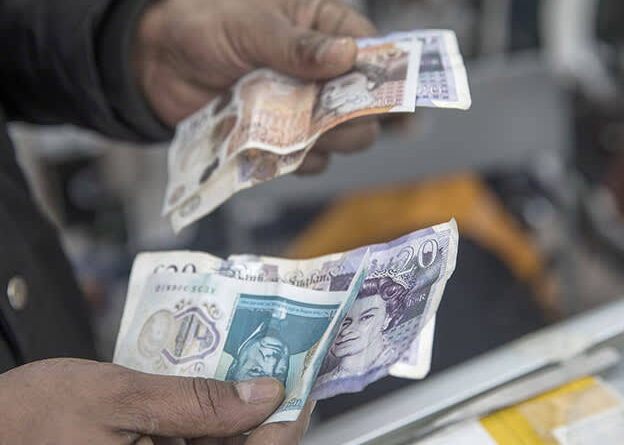Egypt launches dollar-based pension plan for citizens living abroad
Misr Insurance, a state-owned Egyptian company, has issued the country’s first pension plan in US dollars for citizens living abroad in a bid to remedy cash-strapped Egypt’s foreign exchange crunch.
Egyptians aged 18 to 59 living abroad will be able to buy into this plan, which can be started with a one-time payment of a minimum of $500 and a maximum of $10,000, with no further payments required, according to Misr Insurance.
Pensioners can also make a monthly payment in dollars over a period of 10 to 15 years, and can choose to redeem their investments as a lump sum or in monthly instalments over a period of either 10 or 15 years.
They can also choose to receive their payments when they reach the age of 50, 55, 60 or 65. If a pensioner dies or is permanently disabled before reaching the plan’s maturity or the pre-determined retirement age, the pension fund will be instantly paid to them or their beneficiaries in its entirety.
Egypt’s official retirement age was 60 until last year, when the government approved a new labour law that will gradually raise the retirement age to 65.
The Arab world’s most populous nation has been facing a dollar shortage brought on by the economic repercussions of the Russia-Ukraine war that has hamstrung its import-heavy economy and its various industrial sectors.
It has also devalued its currency three times since March 2022, with the pound losing half of its value during the same time period. The country’s headline inflation reached a record 36.5 per cent in July, continuing a rise that has stayed throughout the same period.
Remittances are one of Egypt’s main sources of foreign currency, but they fell by 23 per cent during the first half of the 2022-2023 fiscal year after reaching a record high of almost $32 billion the year before, according to data released by Egypt’s central bank.
“The shortage of dollars through official channels also invigorated the country’s parallel currency markets which began to offer exchange rates higher than the official one,” Medhat Nafea, an economist, told The National.
“Remittances, which are usually carried out through official channels like bank or wire transfers are down because expats can get a better price for their foreign currency on the black market where the exchange rate is 10 pounds higher than the exchange rate at the bank.”
To fix the drop in remittances, the government has launched a number of programmes to encourage Egyptians living abroad, who earn in foreign currency, to invest back home.
However, such programmes, including one allowing Egyptians to import cars from abroad without paying taxes on them and another allowing foreigners who buy property worth at least $300,000 to acquire Egyptian citizenship, have fallen short of their projected revenue.
In late July, the government announced it would allow Egyptians living abroad who evaded their mandatory military service, a crime in Egypt where all eligible men are required to serve in the armed forces, to clear their status in exchange for $5,000 or €5,000.
“The government has always tried to prevent foreign currency earned by Egyptians abroad from escaping into the economies of the countries they live in. However, there does seem to be more of an urgency now amid the current economic climate,” Mr Nafea said.
He said that perhaps more dollars are needed to remedy the ongoing crunch than can be supplied through remittances.
“The highest remittances were collected in 2021 when it was around $32 billion. An obstacle for these schemes is that they are appealing to different segments of the same group of people,” Mr Nafea said.
“So while some might invest in the car scheme and others in the military status scheme, in the end, it’s still the same basket worth $32 billion being divided up among them.”
Read more @thenationalnews











